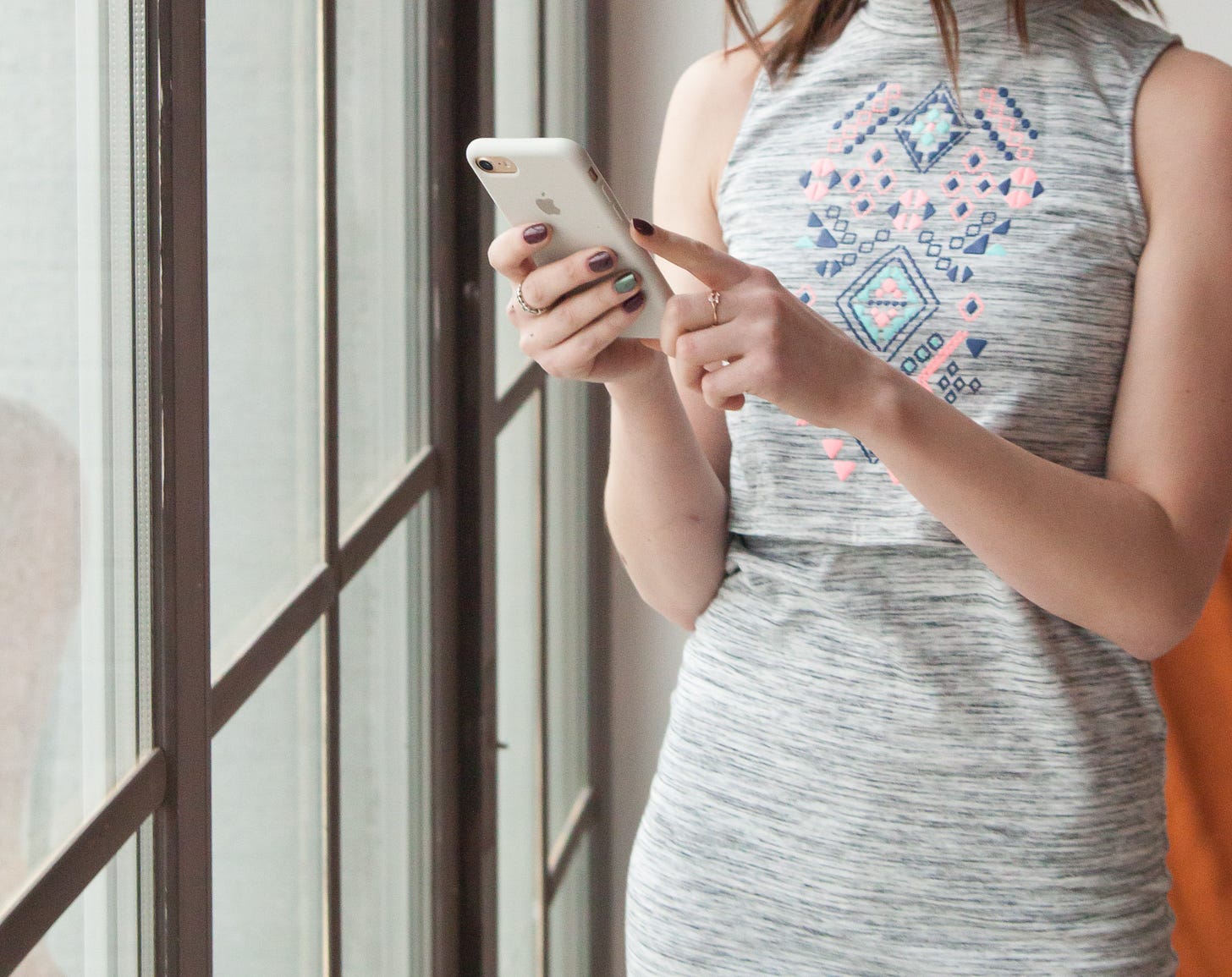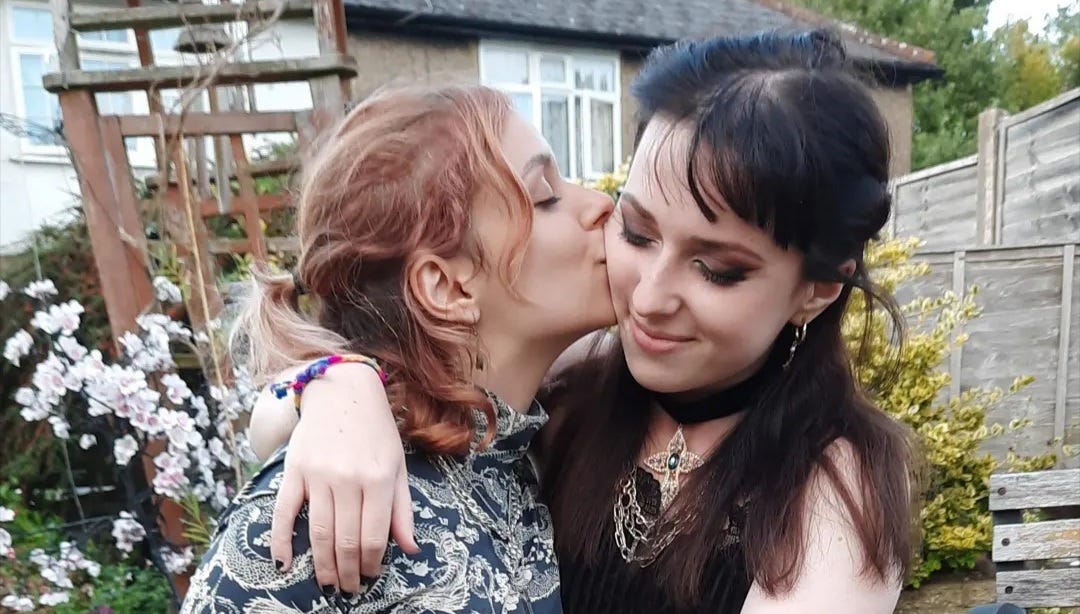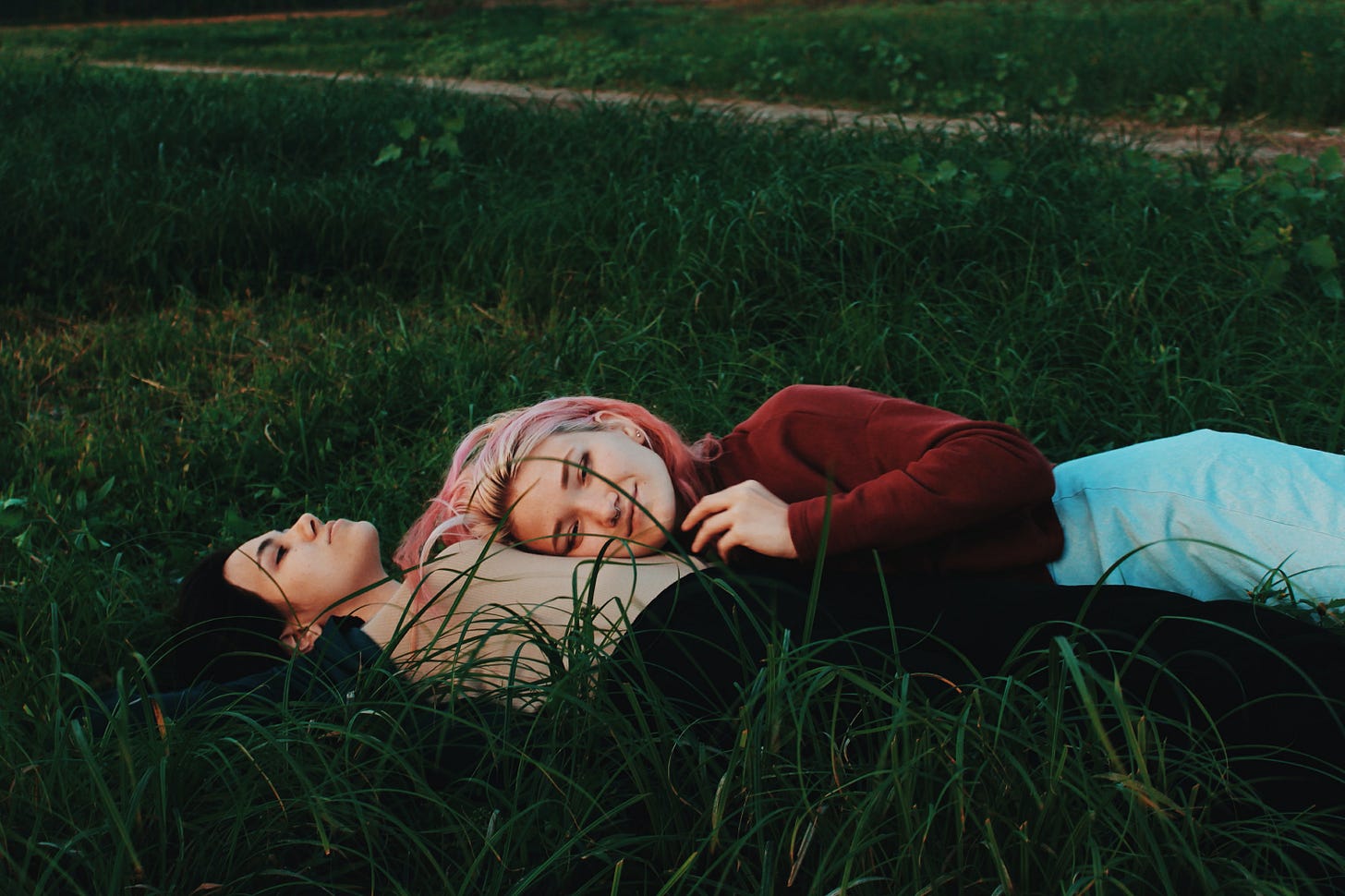From Her to Hinge: dating apps have benefitted the LGBT+ community in more ways than one
Digital dating has revolutionised the queer dating scene, but what other ways can they benefit our community? By speaking with two queer women, I explore the alternative advantages of dating apps
Photo: Jenny Ueberberg/Unsplash
When I first saw my now-girlfriend on Her, I was blown away. Beautiful, likes dogs, local, wants a family, I swiped right and (as in true dating app fashion) thought nothing would come of it. To my surprise, she messaged me asking how to do eyeliner, I jokingly replied ‘just wing it’ and, as they say, the rest was history.
Photo: Ebony Knowles
I was not expecting to find a girlfriend online. Having heard dating app horror stories from my friends, I was warned against even attempting to navigate this new way of dating. Finding a partner was, of course, amazing, but I also did not expect what else I would gain from online dating.
I had just turned 18 and was living in a small town in the middle of nowhere with no idea of how to find other queer women. LGBT+ dating apps were a godsend. Throughout the years, they allowed me to not only form a loving relationship, but also new friendships. I spoke with queer women across the country, and went to gigs, bars and pride marches, expanding and enriching my social circle. Dating apps, especially those made for queer women, allowed me to feel as though I was a part of a wider community, something that had, previously, evaded me.
Even with their annoying inevitabilities: the ghosting, the dead-end conversations and the awkward dates, the usage of dating apps are growing every year, with over 323 million downloads across the globe, according to Business of Apps. But aside from finding partners, hook-ups or even future wives, what other benefits can dating apps provide for the queer community?
Photo: Jenny Ueberberg/Unsplash
Dating apps made coming out easier
Aimee, 21, recently came out as pansexual, meaning she has an attraction to people regardless of their gender. She has since joined dating apps intending to find a partner, using Her, Taimi, Bumble and Hinge, apps that have filters for LGBT+ people. However, she has yet to cross the boundaries between dates and an official relationship, describing ‘a couple of dates but nothing more than that.’
Despite not finding a partner, for Aimee, dating apps served a different purpose: allowing her to ‘come out’ online before coming out to her friends and family.
‘Before I had even told anybody, I had already switched all my dating apps not just to guys and then I came out to everyone else around me. […] it helped me find myself and be more comfortable with myself and my sexuality.’
Whilst the idea of dramatically announcing your sexuality to those closest to you may seem daunting, the apps allow you to do so with a simple click of your preferences. Dating apps made specifically for the LGBT+ community, have allowed us a space to reside within a community of (mostly) open-minded and similarly identifying people easily, minimising the chances of potential backlash that often follow a typical coming out journey.
‘You’re giving that space for your community, I’ve never felt I had to act a certain way.’
Aimee also acknowledged that whilst she does not exclusively use queer dating apps, these platforms have allowed her to feel more comfortable with her presence online.
‘Apps specifically made for us are more comforting because you know that you and other people are there from the same community.’
Photo: Masha S/Unsplash
‘For me, it’s more for validation’
Lauren, 19, also talked about how digital dating has shaped her experiences as a young queer woman online, using Her, Hinge and Tinder. Again, despite her usage of these apps not amounting to an official relationship, they helped her differently. By engaging in conversations with a wider community of LGBT+ people, the apps helped validate her identity as a queer woman.
‘I’ve had conversations with people about their coming out stories and I feel that once you match with someone, it’s something two queer people can automatically relate to.’
Lauren acknowledged that whilst dating apps may seem just ‘a bit of fun’ they also assisted in envisioning her future, helping her decide where she fits in within the community and understand who and what she likes.
‘It’s all about finding out more about myself, for who I want to be with in the future.’
Lauren also described how the lack of physical queer spaces and in-person communities has driven more and more queer people online in hopes of finding themselves and forming deeper connections.
‘A lot of queer people can’t find that connection because of the lack of other LGBT+ people around them, so it’s a way to find people they can have that connection with.’
Whilst Lauren admitted that her use of dating apps is more due to a need for validation than in hopes of finding a partner, this is not necessarily a bad thing, nor is it something to shy away from. Validation, especially for those in the queer community, is important to gain the confidence to understand and appreciate who we are. For Lauren, dating apps, despite their original purpose, gave her the confidence to be herself.
‘It’s a more fluid way to be who you are without any boundaries.’
Photo: Jennifer Burk/Unsplash
The power to unite
Through speaking with Aimee and Lauren, it is clear that dating apps are no longer used for the sole purpose of finding a partner, for queer people, they present unique opportunities.
In Aimee’s case, the apps allowed her to come out online, which ultimately gave her the confidence to be her true self in real life. Lauren, on the other hand, appreciated the digitalisation of queer spaces, allowing her to connect with a wider community of people.
Whilst experiences vary, it is clear that dating apps serve the LGBT+ community in various ways. They can allow us to explore our sexuality, form connections and validate our identities, all with a few swipes of a finger. Whilst this is sadly not possible for everyone across the globe, the emergence of these online LGBT+ spaces is promising for the future of our community and, indeed, queer life everywhere.








